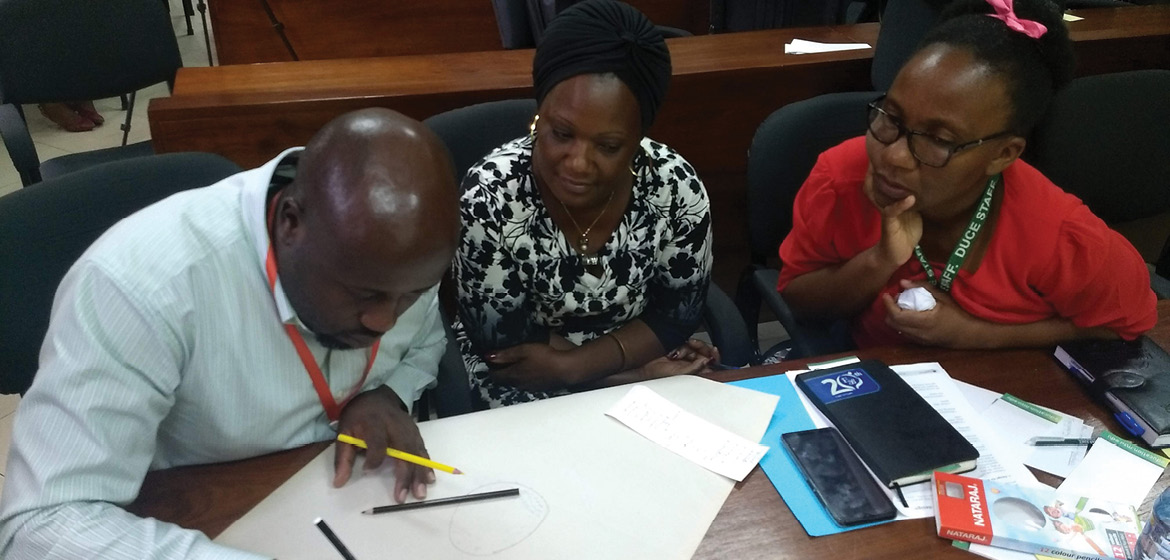College of Education Project PLAY

MSU has partnered with schools in Tanzania through the Tanzania Partnership Program (TPP) since 2007. The MSU College of Education has been heavily involved in the collaborative alliance since its inception, with the promotion of quality education a central tenet of the program.
Project PLAY started out with the goal of enhancing the ways instructors in Tanzania (and beyond) engage their students with hands-on learning. Plans were set to construct a playground at Dar Es Salaam University College of Education (DUCE) in order to help instructors facilitate education through play. When the actual building of the playscape had to be postponed due to the COVID-19 pandemic, the discussions and planning shifted to capacity-building for educators.
Amid the forced pause in construction, a new question arose that shifted the aims of the project: “How do we build teacher educator capacity to teach about play and the ways play can be used to promote learning?” asked Bethany Wilinski, Ph.D. Project PLAY grew from what would traditionally be a workshop or series of workshops held in Tanzania to the creation of an online course to help instructors guide teachers on how to educate through play. “Because of COVID we’re thinking more creatively about how content can be delivered and also how we can potentially reach a broader audience,” Wilinski said.
A team consisting of faculty in Tanzania, faculty at MSU, graduate students in the MSU College of Education, and undergraduate interns all collaborated on how to create learning materials centered around building teacher-educator capacity. “The project has grown far beyond the playscape,” Wilinski said. "We’re thinking about play and active learning more broadly."
Graduate students from the College of Education are creating the content for the course, while an undergraduate intern from the College of Arts and Letters Experience Architecture Program is helping to design the system that will deliver the learning materials.
"We have a team with a lot of complementary expertise and people from different backgrounds who can help us figure out how to develop this," Wilinski said. "It’s been a really nice thing to be able to collaborate."
You can learn more about the Tanzania Partnership Program on the Partnerships for Sustainable Community Development website.


